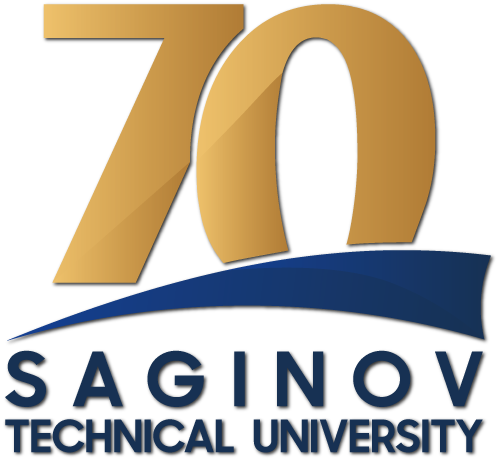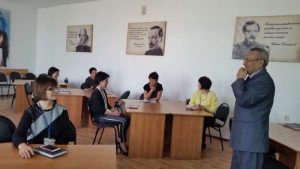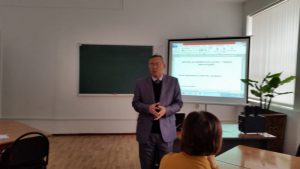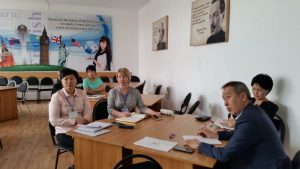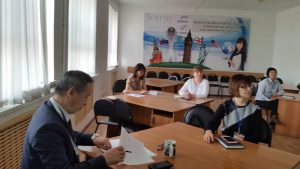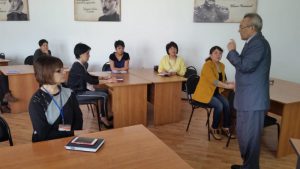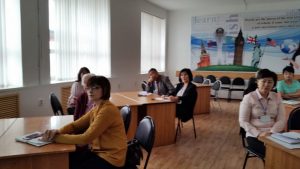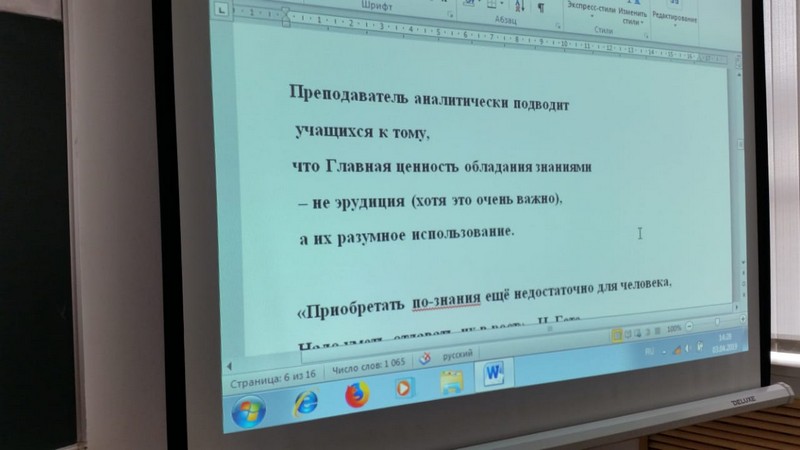
April 1-5, 2019 in Karaganda State Technical University (Karaganda, Kazakhstan) advanced training courses were held for university teachers and teachers of colleges and schools of the Republic of Kazakhstan.
- General information about the seminar
Refresher courses as one of the forms of development of progressive experience, aimed at improving the effectiveness of teaching. In the process of improving the qualifications of teachers, tasks related to the development of professional competencies, overcoming professional stereotypes, and the development of creative activity of teachers and students were solved.
In this regard, the importance of conducting refresher courses on “Developing critical thinking using ICT in the context of trilingual education”, which discussed the introduction of interactive technologies that represent priority areas, approaches, methods and techniques of training, is not in doubt.
The seminar was organized by the Department of Russian Language and Culture and the Institute for Advanced Studies of Karaganda State Technical University.
The main objectives of the PC courses:
1) improvement and improvement of professional competence of university professors and teachers of colleges and schools;
2) obtaining new professional knowledge, expanding the range of pedagogical skills and abilities by studying the experience of introducing modern educational technologies in the learning process;
3) introduction to the world and national methods of teaching the discipline, the inclusion of innovative experience in the teaching process.
The course participants were 27 teachers of the system of higher and secondary special education. Among them are representatives of the West Kazakhstan State Medical University. Marat Ospanov, Atyrau State University. H. Dosmukhambetov, Eurasian National University. L. Gumilyov, Polytechnic College Corporation “Kazakhmys” Balkhash, Karaganda.
The workshop was attended by:
– Mukhamediev Khafiz Sikhuatovich, Candidate of Philology, Assistant Professor of the Kazakh and Russian Languages Department, KazNTU named after Satpayev;
– Kakzhanova Farida Aydarkhanovna, President of the Association of Teachers of English in Karaganda, associate professor of the KarSU named after E.A. Buketova;
– Savchenko Taisiya Timofeevna, doctor of philological sciences, professor of the Russian language and culture department of KSTU.
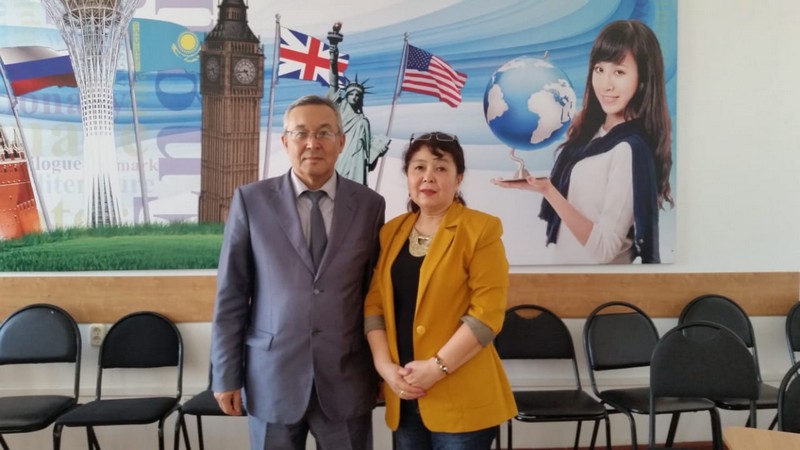
- Course Content
Refresher courses “Developing critical thinking using ICT in the context of trilingual education” were aimed at the implementation of the following tasks:
- Acquaintance of the trainees of the promotion courses with the leading experts in the field of trilingual education, their methods of work;
- Exchange of experience of participants and trainees on the introduction of new technologies in the process of language teaching;
- Dissemination of advanced methodological experience in the teaching of language disciplines.
As part of the PC course, the following issues were discussed:
research of problems of trilingual education at different levels of the education system;
study of foreign and domestic experience of trilingual education;
use of the capabilities of modern educational technologies;
the introduction of new educational and information technologies in the process of teaching language disciplines;
Expansion and replenishment of the fund and the electronic database of educational and methodical, scientific, reference and other literature, multimedia materials, etc.
The first day of training courses were moderated by Savchenko Taisiya Timofeevna, doctor of philology, professor of the Russian language and culture department of the KarGTU, and Tazhibaeva Saule Muhazhanovna, teacher of the Russian language and culture department of the KarGTU.
Savchenko T.T. presented with current topics:
Critical thinking as a modern problem of personal development;
Features of critical thinking when learning languages.
As part of the discussion of these topics, the moderator explained in detail and clearly the essence of the new technology with specific examples from the Russian language teaching practice. Exhaustive answers were given to the numerous questions of the participants and a number of useful tips to novice teachers.
In the practical part of the event Tazhibaeva S.M. introduced students to the integrative approach to teaching Russian in a technical college. The participants and trainees of the courses acquired valuable skills in enhancing students’ cognitive activity, developing critical thinking in the process of applying this approach.
The second day of the seminar was continued at the regional specialized boarding school for gifted children № 2 named after. N.Nurmakova, in which the level learning languages (Kazakh, Russian and English) with the use of new educational technologies.
Leading practicing teachers conducted integrated.
